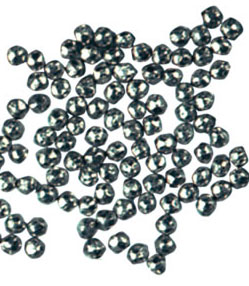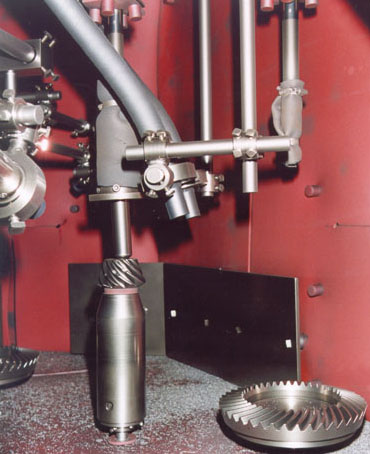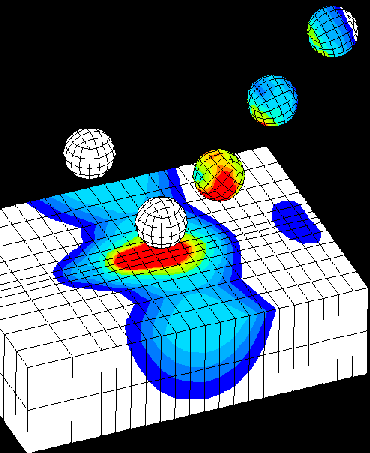|
Shot peening is a process used to produce a compressive residual stress layer and modify mechanical
properties of metals. It entails impacting a surface with shot (round metallic, glass or ceramic
particles) with force sufficient to create plastic deformation. It is similar to sandblasting, except
that it operates by the mechanism of plasticity rather than abrasion: each particle functions as a
ball-peen hammer. In practice, this means that less material is removed by the process, and less dust
created.
Peening a surface spreads it plastically, causing changes in the mechanical properties of the surface.
Shot peening is often called for in aircraft repairs to relieve tensile stresses built up in the grinding
process and replace them with beneficial compressive stresses. Depending on the part geometry, part
material, shot material, shot quality, shot intensity, shot coverage, shot peening can increase fatigue
life from 0%-1000%.
Plastic deformation induces a residual compressive stress in a peened surface, along with tensile stress
in the interior. Surface compressive stresses confer resistance to metal fatigue and to some forms of
corrosion. The tensile stresses deep in the part are not as problematic as tensile stresses on the
surface because cracks are less likely to start in the interior.
Shot peening may be used for cosmetic effect. The surface roughness resulting from the overlapping
dimples causes light to scatter upon reflection. Because peening typically produces larger surface
features than sand-blasting, the resulting effect is more pronounced.
|


